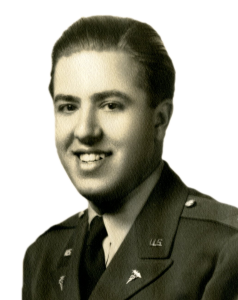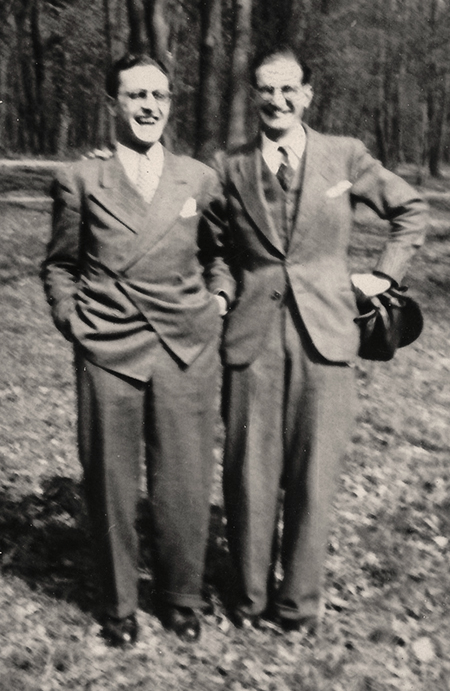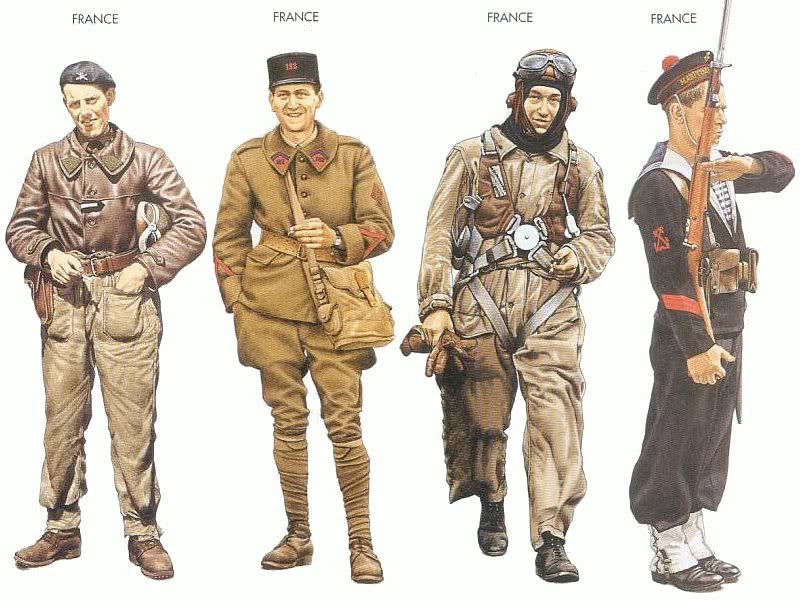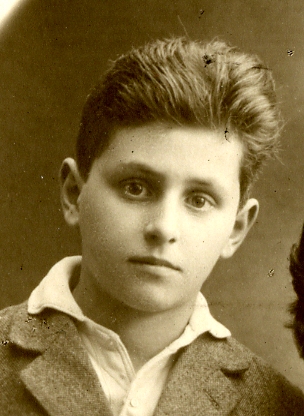You are here: Home / Camp Kilmer, New Jersey August 16, 1942 – September 21, 1942
Camp Kilmer, New Jersey
August 16, 1942 – September 21, 1942
August 26, 1942
Camp Kilmer, New Jersey
Dear Folksies,
You asked about Alain driving into the ditch. It was only at a speed of 1-1/2 miles per hour and consequently we nestled very gently into it – possibly one reason why it was hard to get out. We went straight into it and then just sat there and laughed. Naturally, the only scratches we got were on the soles of our feet as we walked along the gravel road over towards the entrance of the hospital where our truck was sitting and where our sergeant was sitting laughing at the spectacle – and then he laughed harder!!
As Alain said, the picture was really something, but unfortunately none who watched us thought to take a picture. It was rapidly getting dark but at the time that we went wading it would have still been light enough to get a big picture.
Lois, also, was most disgusted that she hadn’t been around when the performance first started because she certainly would have taken pictures. Yes, we were also drips – in fact, Alain’s shirt was so wet when we went into the lobby of the nurses’ quarters, Charlotte Johnson (one of the nurses from Stanford) went and got one of her woolen undershirts for Alain to wear.
As for Alain’s work: He says he does darn near everything around the place. He sells, interviews and also cleans up the joint. Apparently it is a rather small place but doing better as time goes on. He likes the work alright, but certainly not as much as the work he used to do.
He lives in a house with some family in Trenton. For a while he was registered as 1A in the draft, but now he is apparently registered in 4C – i.e. as an Alien. His draft board, however, seems to change its mind rather frequently and he does not know how long he will be in that classification. He figures he will be in the army before too long.
As you may remember, when Alain was with us three years ago he had no desire whatsoever to fight. He had nothing particular against the Germans at that time, no more than most of us who were considering the concentration camp angle more than anything else. Now, however, he feels a distinct hatred for them — not just because of what he went through, because actually he fared very well at the hands of the Germans. He would like to be able to kill every one of them now. His feeling arises primarily from what he has heard about the concentration camps, and from what the Germans have done in occupied zones. He feels that the thing to do is to clean them up very thoroughly from the top down to the bottom.
After Alain had been captured, he was kept in a prison camp some ways out of Paris. Sanitary conditions were poor and food was very poor. The German soldiers ate the same poor food but had more of it, of course. Alain was the first in camp to come down with dysentery and consequently was lucky enough to be sent into Paris to the hospital. Others who followed him on the sick list at that camp were kept at the camp because by then the dysentery had achieved epidemic proportions.
While he was gradually recuperating in the hospital he heard that all doctors, nurses, and orderlies were being released from the prison camps, so he very nicely managed to forge papers making himself a hospital orderly. Then, when he returned to the prison camp he waited a day or two and went up to one of the German officers and told him that he was an orderly and showed the papers and he was released almost immediately.
Before he got ill, while he was at the camp, he was used as an interpreter between the Germans and the English. The Germans apparently did not know English though some of them knew French. Most of the men did not know French, however. Alain had only one incidence of bad treatment at the hands of a German soldier. Apparently they broke all rifles that they captured. Well, Alain’s rifle being an 1876 model had its wooden parts pretty solid, consequently, all the banging against stone, etc., did no good, and Alain, rather naturally, started to laugh rather uncontrollably. For this the irate soldier kicked him. Other than that and the poor food, the treatment was O.K. Of course, that was a prison camp and not a concentration camp — there is a whale of a difference.
Alain got out of Paris by being disguised as a brakeman on a freight train — a position he was gotten into by Raoul. He was given a lantern and seated on top of a tank car. He had to swing that lantern for about 100 miles and his only quivering was when they just were crossing the border between occupied and unoccupied zones. He then got to Marseilles and went by boat from there to Martinique and finally to New York. I did not get the details as to price, how he had money, etc., as a lot of my talking with him was in the lobby of the nurses’ home where others were interested in what he was telling about France and his experiences.
Loads of love,
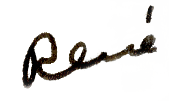
.

